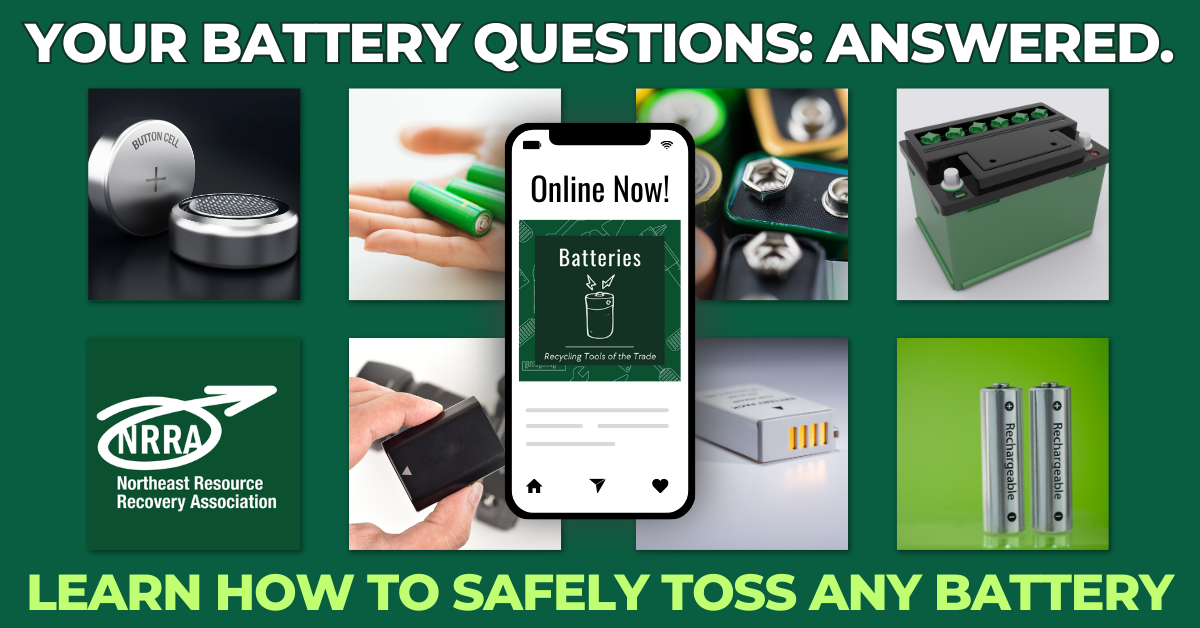NRRA, Your Friendly Neighborhood Non-Profit for Recycling Resources
Primary tabs
The Northeast Resource Recovery Association (NRRA) is the oldest and largest cooperative-model recycling nonprofit in the country. Located in Epsom, New Hampshire, NRRA works with 90% of New Hampshire communities, helping municipalities market their recyclable materials and providing ongoing education and technical assistance. While town officials and residents may have seen the NRRA name on the Environmental Impact Report often included in annual town reports, most don’t realize the additional NRRA benefits and resources available to municipal members.
Recycling is a topic that may appear deceptively easy, but with over 180 individual transfer stations across the state – each doing things just a bit differently – recycling confusion among residents is common. Transfer station operators are not only the experts when it comes to recycling and solid waste management, having been certified by the state, they are also often the town employees that residents see and interact with the most!
To help set operators up for success, NRRA created a Recycling 101 presentation designed for residents that focuses on the basics of recycling in New Hampshire. It begins with an overview of recycling in the US, then looks at the solid waste and recycling infrastructure within the state. The presentation addresses the financial impact of a strong recycling program, such as increased revenue and avoided disposal costs, and the reason why recycling programs can differ from town to town. Finally, it covers the nitty-gritty of recycling – what happens to materials when they are recycled, myths and facts about plastics, and the unique challenges the state faces, along with possible solutions. The recorded presentation has a 30-minute run time and can be paired with an in-person Q&A session with local transfer station operators. This allows municipalities to share up-to-date recycling education with residents, while also addressing community-specific recycling information.

Though there is a cohort of folks in every town who will happily come out to a recycling presentation, most residents will not. This is where NRRA’s customized recycling postcards and handouts can come in handy! NRRA member towns can fill out a simple form on the NRRA website and in return will receive pdfs and image files that have been customized to their community, including the town logo, transfer station contact information and hours, and the specific recyclables the transfer station accepts. This resource has been designed so that it can be printed with 2 handouts per page, double-sided, to create half-sheet handouts. Towns can also work with a local print shop to print postcards that can be mailed to all households. While printing and mailing has an upfront expense, by sharing your communities’ recycling guidelines, municipalities can expect an increase in recycling rates, a decrease in recycling contamination (throwing non-recyclable things in with recyclables), and a decrease in municipal solid waste disposal costs as more waste is diverted to recycling.
Has your town square gone digital? We have a resource for that! The NRRA Recycle Right Campaign is designed to be shared through social media and covers 1) improving recycling habits, 2) busting recycling myths, 3) providing recycling education, and 4) celebrating fellow New Hampshire communities who are recycling right. With a variety of campaign options, you can run anything from a full four-month campaign to four weeks of the “greatest hits.” The instructions take away the guesswork so you can just point, click, and share. Municipalities are also welcome to save and reprint images and text from the campaign on town websites or printed on handouts or posters.

Beyond the video, print, and digital recycling education resources, NRRA has a variety of Waste Reduction and Diversion Toolkits and resource pages for specialized needs. For instance, the Batteries Toolkit includes video, images, and links for how to recycle or properly dispose of any kind of battery – ensuring they don’t catch fire or explode – which is helpful for residents and transfer station operators alike! The Composting and Food Waste Diversion Toolkit can help a municipality think through a variety of programs that would help get food waste out of their solid waste stream. The Recycling Education Toolkit and School Resources pages include engaging videos showing the recycling process in action and steps students can take to recycle or compost at school.
Finally, we understand the importance of being able to fund recycling and waste reduction programs through alternate funding sources. That’s why we keep an up-to-date Grants Opportunities page with both national and state grants focused on recycling education, equipment, and management.
Whether you are looking to better educate your residents through printed handouts or an in-person presentation, or you’re wanting to upgrade your recycling and solid waste program with a piece of new equipment or a new waste reduction program, NRRA has a host of resources available to municipalities across New Hampshire.
For more information, check out the NRRA website: www.nrrarecycles.org or contact NRRA’s Communications Manager, Andrea Folsom, at afolsom@nrrarecycles.org.
